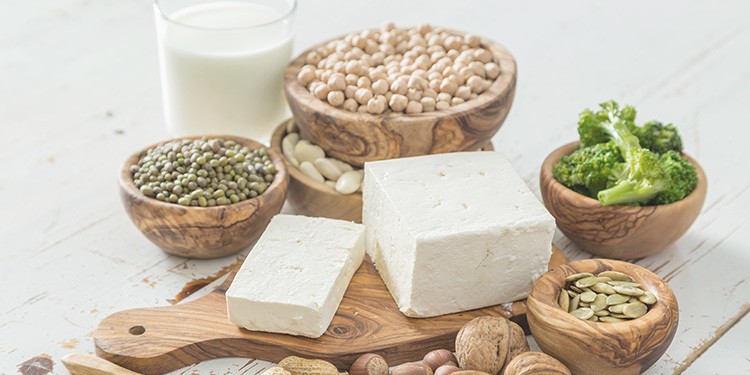Subscribe to our newsletter
Receive news and benefits on health and wellness.

SHA Magazine Healthy Nutrition
Proteins are the nutrients responsible for developing tissues, transporting vitamins throughout our bodies and helping us to defend ourselves against disease. And nothing is healthier than vegetable proteins, one of the bases of the SHA method.
We are living in times where the need for vegetable proteins has increased exponentially for many reasons: food safety, ethical issues, environmental awareness, the increasing increase and diagnosis of intolerances, sustainability, the adoption of proactive approaches to health… Everything that has always concerned SHA and sufficient reason to defend healthy habits.
And it is no longer just the progressive but unstoppable increase in vegetable proteins to replace animal proteins, but the consumer is also looking for healthy alternatives within the group of products without dairy and even without soya, such as proteins from peas, pulses, quinoa and many more varieties.
One of the main keys to the choice is in the amino acids. A total of twenty different ones are used to “build” proteins. And they are all fundamental to every cell in our body.
The distinction that everyone is talking about is between essential amino acids (those that our body cannot produce) and non-essential ones (those that it can manufacture). This makes the difference between which amino acids we should obtain through the diet. We all need an adequate proportion of amino acids (essential and non-essential) to enjoy good health.
Animal proteins may be more “complete” in essential amino acids, but the relevant part is in one vital aspect: the final balance on health at a global level. How can we ignore the problems that animal protein consumption brings for such primordial aspects as heart health or blood sugar control?
So-called “protein quality” is a measure that is established on the basis of the amino acid composition of a protein and its digestibility. It is a basic aspect of finding out which plant proteins should be part of our diet because they are so complete at all levels.
The Academy of Nutrition and Dietetics states that protein in a wide variety of plant foods consumed over the course of a day can provide sufficient essential amino acids when calorie requirements are met. It is therefore important that different sources of plant protein are combined to supplement amino acid deficiencies. And that is where the figure of a healthy nutrition expert comes in.
The food and nutrition sector has found a huge focus of research over the last decade on a three-way relationship that is derived from the link between protein quality, plant proteins and healthy ageing.
Thus, a recent study by the American Heart Association concluded that those who consume the richest diets in fruits and vegetables have a 31 per cent lower risk of dying from cardiovascular disease and overall mortality risk of less than 20 per cent compared to those who consume animal-centred diets.
We are chemical beings, so our bodies need to replenish and maintain essential chemicals. That is why it is essential to include adequate nutrition in every health programme, which is achieved 100 per cent with foods rich in vegetable protein.
Nutrition is one of the fundamental pillars of the popular “SHA method”, whose maximum aspiration is to help achieve and maintain an optimum state of health in order to enjoy the broad physical, mental and spiritual values. It is an integrative method that covers multiple disciplines with nutrition as one of the main arguments.
SHA nutrition is based on a healthy, energetic and balanced type of diet inspired by millenary principles and adapted to modern life and all its demands, placing special emphasis on local, organic and seasonal foods. And again: vegetable proteins are the proteins of choice because of their contribution of amino acids, alkalisation, help to control weight, generation of satiety, a vital alternative for intolerants, physical performance…
Maria Romeralo, nutritionist at SHA Wellness Clinic, recommends five essential foods and ingredients that should not be missing from a healthy pantry:
– Miso paste: for its contribution to a stronger immune system and a healthier intestine.
– Vinegar, pasta or umeboshi plums: for their role as a natural probiotic.
– Tamari sauce: for its absence of fat and gluten.
– Kukicha tea: for its extraordinary alkalizing properties.
– Brown rice: for its energising power.
Receive news and benefits on health and wellness.
